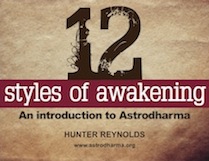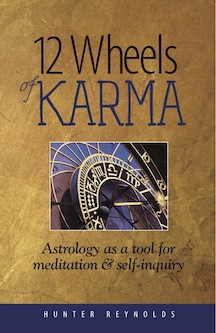 SO IN LOVE with dream interpretation is the Beloved, that S/he created “dream animals” with the power to dream their dreams rock-solid and entirely unworthy of interpretation. Bravo scientific materialists! Your denial of dreaming may be the most outrageously imaginative dream interpretation of all. Sadly, it also destroys psychic wholeness because it allows our muscle of contemplation to atrophy. To better understand how and why this happens, we will need to put an Astrodharmic spin on the three stages of contemplation as outlined in the ancient Christian and Hindu mystic traditions.
SO IN LOVE with dream interpretation is the Beloved, that S/he created “dream animals” with the power to dream their dreams rock-solid and entirely unworthy of interpretation. Bravo scientific materialists! Your denial of dreaming may be the most outrageously imaginative dream interpretation of all. Sadly, it also destroys psychic wholeness because it allows our muscle of contemplation to atrophy. To better understand how and why this happens, we will need to put an Astrodharmic spin on the three stages of contemplation as outlined in the ancient Christian and Hindu mystic traditions.
The three stages of contemplation:
1) Subject/object knowledge
2) Cataphatic knowledge
3) Apophatic knowledge
1. Subject/Object knowledge
Schooled in the conceptually explainable, the mystically adolescent mind swings between time-bound subject/object ways of knowing and fits of rationality-rejecting intoxication, trance and superstition. The progression goes something like this: first the ego concretizes the dream – taking refuge in its sensual perks until they go flat. Then, having failed to cultivate any oracular insight into personality, time and events, ego has only one source of comfort left: presence-killing distraction and escapism. In order to numb the grimness of the time-bound, material realm, ego allows itself to be taken over by intoxicating, archetypal forces it doesn’t perceive or understand. Nonetheless, the materialistic range of contemplation is crucial because it equips us with the know-how needed to keep our bodies fed and healthy, and our psyches socially integrated enough to keep bumping us into other egos who dutifully reflect back to us our petty habits of mind. At this stage, nothing less than a brutal mirroring of our ego in imaginary “others” could compel us to abandon our sobriety/intoxication swings and embark on a serious investigation of life’s deeper, cataphatic meaning.
2. Cataphatic Knowledge
Roughly translated, “cataphatic” means “to bring God down in such a way as to speak of him.” The cataphatic stage of contemplation begins when we discover a symbolic language embedded into our everyday life (ie, astrology), that hints at the otherworldly presence and guidance of the Absolute. Cataphatic knowledge is critical because it challenges us to develop the archetypal shrewdness and grounding we need to witness and navigate our own and other’s egos in preparation for the next stage: drunken union with the divine play. The opportunity here is to take bigger and bigger baby steps away from hard-edged literalism into a world that is held together by a lawful, transpersonal psyche and system that is more subtle than materialist logic, yet more gross than mystic absorption. The danger is that we may mistake this mediated, symbolic knowledge for a direct experience of divine presence.
3. Apophatic Knowledge
Once the world has become littered with the positively intended attributes of a divine personality, we can more safely move on to the seamless field of sentience that subsumes it all. At this point, religion and all oracular, symbol-cracking systems are rendered useless. All that can accurately be said about the Absolute is what it is not. This language of negation is called “negative theology” or apophatic knowledge. Hindus call this”Neti, neti” (neither this, nor that). The purpose of apophatic contemplation is to negate dualistic rationalizations and other distractions from the non-conceptual meditative awareness of reality until nothing remains but the Self. The potential here is to become genuinely nondual – a being who has learned to consciously navigate the realm of brute karma and divinity-pointing symbol, yet know all of it as irresistible invitations to throw oneself into the ocean of pure Being.
The key point is this: learning to intuitively perceive and language the felt meanings of symbol and archetype (cataphatic knowledge) is a crucial bridging step between the hard-edged, subject/object paradigm and stabilized mystical realization. That’s why astrology and archetypal self-inquiry programs like the Styles of Awakening Training are such valuable stepping stones on the path.
One way or another, we all find some way of carrying our mandatory eight-hour dose of dreaming into this hard-edged world. The only question is, will we encounter the dream through unsustainable, time-killing trance or time-integrated, meditative presence? For that, say the mystics, we will need a bridge.
Ready for more?
-Click here to learn about the upcoming Styles of Awakening online training.
-Click here to schedule an astrology reading with Hunter.
-Click here to subscribe to Styles of Awakening Newsletter (monthly).
-Click here to subscribe to posts by email.
Like this article? Share it with friends:


 Get free newsletter & e-book
Get free newsletter & e-book